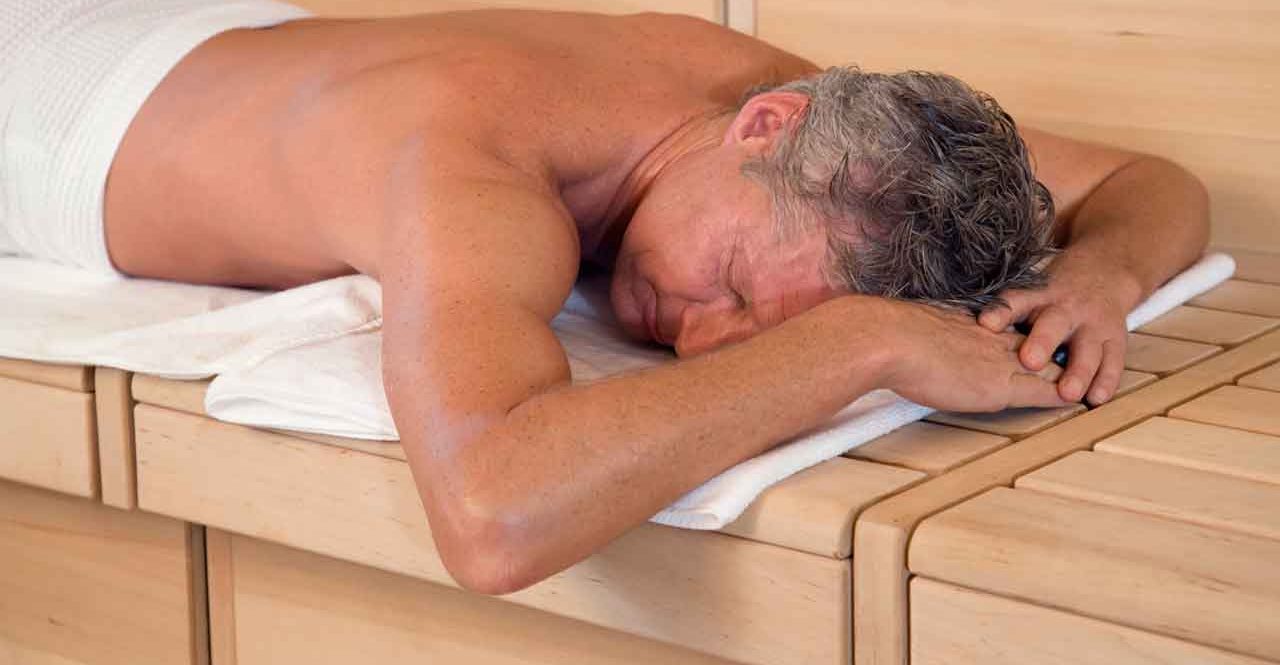The Benefits of a Sauna: Lower Risk of Dementia

If you're a man, the benefits of a sauna may be they cut your risk of heart attacks and developing dementia by more than half. Here's what you should know.
Saunas are a pleasure that is also good for you. In fact, these sweat sessions may cut heart attacks, and, perhaps, dementia.
The research mostly comes from Finland, where saunas are a tradition for men. But people in Thailand, Russia, and Ireland are also fond of saunas.
YOU MIGHT ALSO LIKE: People with Dementia Respond to Music
To study saunas and dementia, a team at the University of Eastern Finland looked at data from more than 2,300 Finnish men, ages 42 to 60, beginning in the 1980s. Over 20 years, researchers had checked each year for new cases of dementia.
The benefits of a sauna
It turned out that men who used saunas four to seven times a week had a 65 percent lower risk of Alzheimer’s disease and other kinds of dementia than people who used the sauna only once a week, after controlling for weight, diabetes, weight, heart attacks, and other factors.
In Finland, saunas are especially hot, on average 175 degrees F and can go as high as 212 degrees F — a good reason to up your tolerance for heat in the sauna, as long as you drink enough water and stay clear of alcohol.
Other research has concluded that, after accounting for the usual factors such as smoking and exercise, men who used a sauna four times a week or more were more likely to be alive at the end of 20 years than less frequent users. Men who took a sauna only once a week were twice as likely to die of some kind of cardiovascular event.
Longer sessions helped, too: Compared with men who spent less than 11 minutes in the sauna, lounging for more than 19 minutes cut the risk of a cardiac-related death by half. People who spent less time in the sauna also tended to choose a lower temperature.
What do saunas do?
Dry heat has dramatic effects on the body, in some ways matching a stiff workout. Your skin temperature soars to about 104 degrees F within minutes, and you might lose a pint of sweat. Typically, your pulse jumps high enough to nearly double the amount of blood your heart pumps each minute.
Regular saunas are also a form of relaxation, often with close friends, and it’s well-established that social ties and reducing stress are associated with longevity and overall better health.
Heart patients may fear that a sauna will over-tax them; check with your doctor, but there’s evidence that saunas are safe and even helpful, as long as you don’t overdo it. The same is true for children and even healthy pregnant women.
Other benefits of a sauna
There’s a long list of ailments that may be helped by a trip to a sauna or regular visits: you can relieve symptoms of the common cold, reduce pain and improve joint mobility from rheumatoid arthritis, and tame psoriasis outbreaks — or even relieve symptoms of COPD.
If you’re already going to a gym with a sauna, it’s worth building short visits there into your routine. Start with fewer than 10 minutes, and bring a bottle of water with you. If you ever feel dizzy or lightheaded when you rise to stand, be extra careful in the sauna. You don’t want to fall onto the sauna floor. Hold on to the step and make sure you’re steady.
You know that regular exercise is a life-saver; now you know that the lull in the sauna can also help you ride into a healthier and happier old age. Wherever you are, you have good reasons to live like a Finn.
YOU MIGHT ALSO LIKE: Personality Changes and Early Warning Signs of Dementia
Updated:
March 05, 2020
Reviewed By:
Janet O’Dell, RN